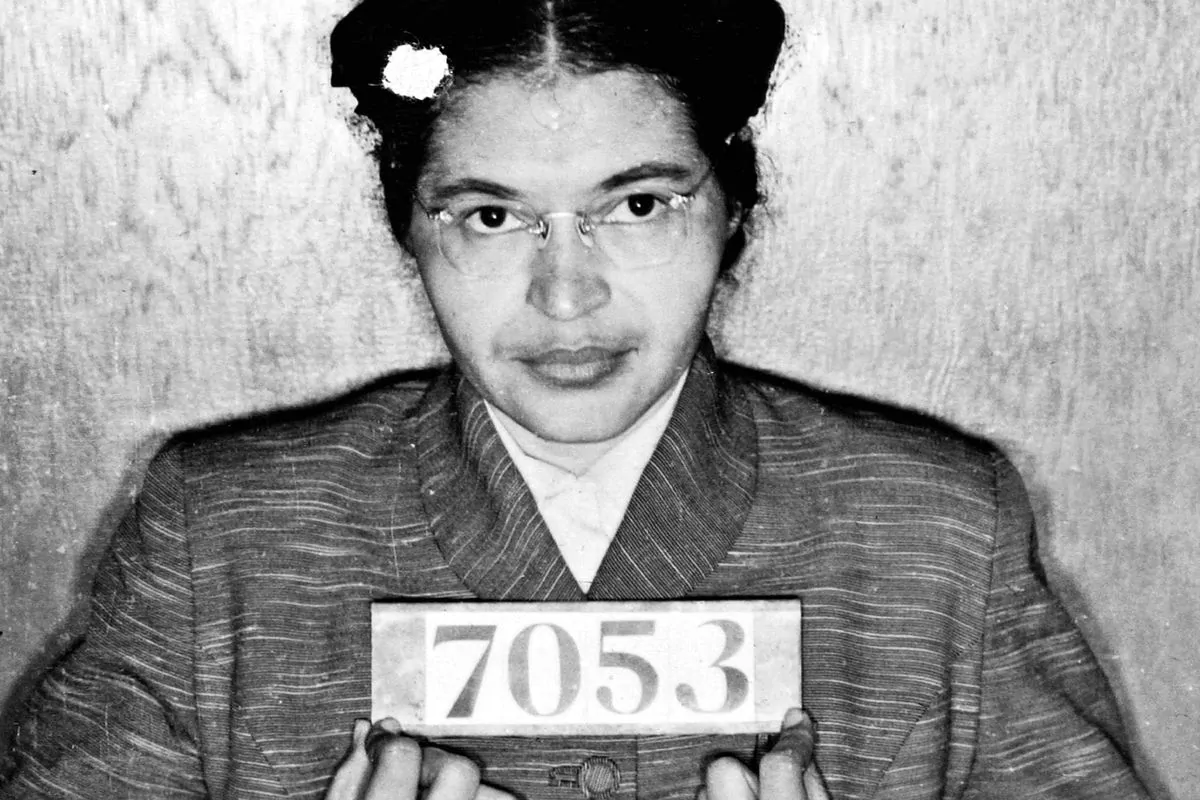It is great that the city of Montgomery finally has a statue honoring Rosa Parks.
I’m just not sure I like that statue — the one unveiled at a ceremony on Sunday in Montgomery, the 64th anniversary of her arrest. The one in which she’s portrayed as a diminutive everywoman merely waiting to ride the city bus home from a hard day working as a seamstress.
That’s the beginning of the story we all know about Rosa Parks — the Mother of the Civil Rights Movement. That’s the story we were all told in history classes growing up.
A few moments later, the story goes, after Parks boarded the bus and refused to move to the back so a white man could sit down, she was arrested. That led to the bus boycott in Montgomery. And civil rights. And we all lived happily ever after. Amen.
It’s a fairy tale.
It’s another in a long line of civil rights fictional tales that we’ve spread, because civil rights pioneers apparently need sympathetic-to-white-people personalities in order for their stories to be palatable.
The fact is Rosa Parks wasn’t some meek seamstress. And that story we’ve all heard over and over about her is how we end up with state leaders who possess the cognitive dissonance to praise and protect confederate monuments one day and show up to a Rosa Parks statue dedication the next.
Because we’ve changed the stories. We’ve made the people involved less real. We’ve altered their basic traits. And we’ve painted the injustices they faced as uncommon and unrelatable in today’s world.
In our stories, Parks and other civil rights icons were unlikely — even unassuming — regular folks, just trying to go about their lives when they were confronted with outrageous, in-your-face racism. And their wholesome responses to those few injustices happened to touch off grand displays of community — that’s right, “community,” because some white people need their due — uprisings by mere chance.
The black civil rights leaders can never be angry. They can never hit back. They can never, ever have a plan.
Because if any of those things exist, those people and their stories become relatable to people today. And someone somewhere might have to consider that the injustices that were being fought by Parks and so many others back then didn’t die with a bus boycott and they look a whole lot like some injustices of 2019.
After all, is what Rosa Parks faced on those buses in Montgomery much different than what black Americans face every day in our justice system — where the rules seem to apply differently based upon the color of your skin or the size of your bank account?
Is it much different than the unfair home lending practices that placed stricter lending rules on minority Americans?
Is it much different than the stop-and-frisk policies or the constant badgering of Hispanic Americans?
And make no mistake about it, Parks and many other Civil Rights Movement leaders were not wholly different than many of the civil rights leaders active today.
Because Rosa Parks wasn’t tired from working that day. She was tired of the BS that held her and so many other black Alabamians down.
She also happened to be smart and fearless.
Parks was the secretary of the local NAACP at the time of her arrest and she had been a key figure in the planning of a city-wide boycott of Montgomery’s buses. The group of planners, which included key figures in the Civil Rights Movement, had been working for months on a plan.
As part of her work with the NAACP, Parks investigated rapes of black women by white men — usually powerful, white men. She challenged them, stepping in when the police wouldn’t investigate and forcing courts to look at evidence.
She had been trained at an education center for activism in Tennessee, and she helped organize and recruit black youths to the NAACP.
So, that Dec. 1 day in 1955, when she boarded the bus, took her seat in the black section and was told by the bus driver — who was acting illegally — to get up for a white man, she didn’t have much fear about saying, “Nah.”
Actually, to be accurate, the driver told Parks that if she didn’t stand up and give her seat to a white passenger, he would call the police. To which she replied: “You may do that.”
You know why?
Because she was angry. Years later, during an interview, she said when she was asked to give up the seat, the only thing she could think about was the recent murder of Emmett Till. And all of the injustices and the daily racism and the unfairness of it all.
She was tired of it.
What followed Parks’ arrest was a 385-day, full boycott of the bus system by black workers in Montgomery. It crippled the city. It caused enormous problems. It drew national attention. And it was, quite possibly, the greatest feat of political organization and activism in our nation’s history.
And yet, some people want you to believe it occurred by mere chance because this tired, timid lady got arrested.
They want that because if that’s the story, Rosa Parks becomes much less inspiring to future generations. Her story relies on an element of chance, instead of on the planning, intelligence and determination that was actually involved.
Look, the statue unveiled in Montgomery on Sunday really is beautiful. And it will undoubtedly be used to inform numerous generations about Parks and about the Bus Boycott.
I just hope the right story is told. And those future generations get to know the real Rosa Parks.


















































